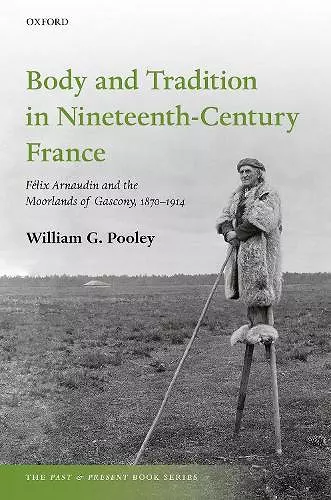Body and Tradition in Nineteenth-Century France
Félix Arnaudin and the Moorlands of Gascony, 1870-1914
Format:Hardback
Publisher:Oxford University Press
Published:16th Dec '19
Currently unavailable, and unfortunately no date known when it will be back

The moorlands of Gascony are often considered one of the most dramatic examples of top-down rural modernization in nineteenth-century Europe. From an area of open moors, they were transformed in one generation into the largest man-made forest in Europe. Body and Tradition in Nineteenth-Century France explores how these changes were experienced and negotiated by the people who lived there, drawing on the immense ethnographic archive of Félix Arnaudin (1844-1921). The study places the songs, stories, and everyday speech that Arnaudin collected, as well as the photographs he took, in the everyday lives of agricultural workers and artisans. It argues that the changes are were understood as a gradual revolution in bodily experiences, as men and women forged new working habits, new sexual relations, and new ways of conceiving of their own bodies. Rather than merely presenting a story of top-down reform, this is an account of the flexibility and creativity of the cultural traditions of the working population. William G. Pooley tells the story of the folklorist Arnaudin and the men and women whose cultural traditions he recorded, then uncovers the work carried out by Arnaudin to explore everyday speech about the body, stories of werewolves and shapeshifters, tales of animal cunning and exploitation, and songs about love and courtship. The volume focuses on the lives of a handful of the most talented storytellers and singers Arnaudin encountered, showing how their cultural choices reflect wider patterns of behaviour in the region, and across rural Europe.
This book makes a valuable effort at using folklore sources to shed light on the history of the body in the Gascon countryside. * James R. Lehning, Journal of Modern History *
In this concise book, Pooley gets straight to the point: he convincingly demonstrates the importance for historians to consider folklore collections as a major source to document nineteenth-century rural societies. * Éva Guillorel, Associate professor in Early Modern History at the Universite de Caen Normandie, Folklore *
- Winner of Winner of the 2020 Katharine Briggs Award from the Folklore Society.
ISBN: 9780198847502
Dimensions: 232mm x 161mm x 18mm
Weight: 480g
208 pages